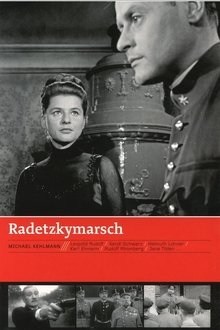At the start of World War I, Paul Baumer is a young German patriot, eager to fight. Indoctrinated with propaganda at school, he and his friends eagerly sign up for the army soon after graduation. But when the horrors of war soon become too much to bear, and as his friends die or become gravely wounded, Paul questions the sanity of fighting over a few hundreds yards of war-torn countryside.
Related Movies

Standard Operating Procedure (2008)
Errol Morris examines the incidents of abuse and torture of suspected terrorists at the hands of U.S. forces at the Abu Ghraib prison.

Antz (1998)
A neurotic worker ant in love with a rebellious princess rises to unlikely stardom when he switches places with a soldier. Signing up to march in a parade, he ends up under the command of a bloodthirsty general. But he's actually been enlisted to fight against a termite army.

Un roman national (2025)
At 22, Damien is a far-right soldier : an activist for "Barrière Nationale", a fringe group fighting against the so-called "Great Replacement", he lives only for his homeland. On June 24th, as Paris swelters under a troubling heatwave, Damien guns down eleven people in a mosque. Arrested that same evening, the media erupts and speculation spreads ; to some, Damien is a monster, to others, a neurotic consumed by loneliness. From his rural childhood to his philosophy studies in the capital, nothing seemed to point toward such a violent act. Who is responsible ? Damien’s story — or those who shaped him ?
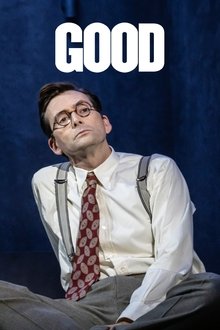
National Theatre Live: Good (2023)
As the world faces its Second World War, John Halder, a good, intelligent German professor, finds himself pulled into a movement with unthinkable consequences.

Turtles Can Fly (2004)
Turtles Can Fly tells the story of a group of young children near the Turkey-Iraq border. They clean up mines and wait for the Saddam regime to fall.
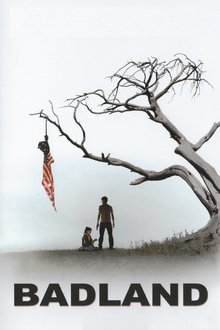
Badland (2007)
Jerry (Jamie Draven) was an idealist when he served in the first Gulf War. But when he was later deployed to Iraq, Jerry was an older man, a father of three and embittered by broken promises and unfulfilled desires. When Jerry returns from Iraq he has been transformed by horrors that cannot be forgiven. He lives a life of poverty, his children afraid of him and his wife, Nora (Vinessa Shaw), unsympathetic and unhappy. When Jerry discovers that Nora has betrayed him, his anger and despair drive him to commit an act so heinous and irreversible that nothing he had experienced in combat could have prepared him for.

The Red Baron (2008)
Richthofen goes off to war like thousands of other men. As fighter pilots, they become cult heroes for the soldiers on the battlefields. Marked by sportsmanlike conduct, technical exactitude and knightly propriety, they have their own code of honour. Before long he begins to understand that his hero status is deceptive. His love for Kate, a nurse, opens his eyes to the brutality of war.

Summer Things (2002)
Two couple of friends, one very rich, the other almost homeless, decide to go on Holiday. Julie, a single mother, joins them too. Once at seaside, it starts a complicate love cross among them that will involve also a transsexual, a jealous brother, a Latin Lover and another nervous stressed couple. Not to mention about the daughter of one of them that is secretly in Chicago with one of her father's employees... At the end of the summer, all of them will join the same party...
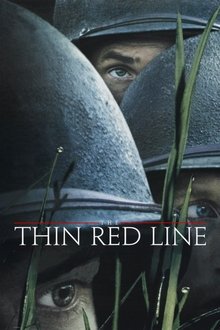
The Thin Red Line (1998)
The story of a group of men, an Army Rifle company called C-for-Charlie, who change, suffer, and ultimately make essential discoveries about themselves during the fierce World War II battle of Guadalcanal. It follows their journey, from the surprise of an unopposed landing, through the bloody and exhausting battles that follow, to the ultimate departure of those who survived.
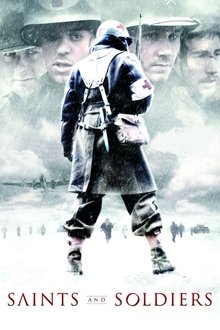
Saints and Soldiers (2003)
Five American soldiers fighting in Europe during World War II struggle to return to Allied territory after being separated from U.S. forces during the historic Malmedy Massacre.
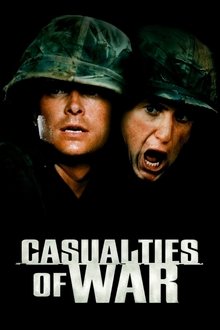
Casualties of War (1989)
During the Vietnam War, a soldier finds himself the outsider of his own squad when they unnecessarily kidnap a female villager.
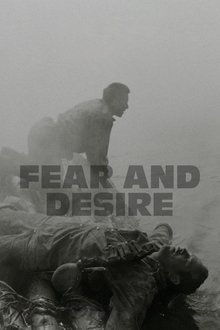
Fear and Desire (1953)
After their airplane crashes behind enemy lines, four soldiers must survive and try to find a way back to their battalion. However, when they come across a local peasant girl the horrors of war quickly become apparent.
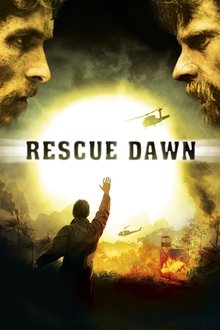
Rescue Dawn (2007)
A US Fighter pilot's epic struggle of survival after being shot down on a mission over Laos during the Vietnam War.
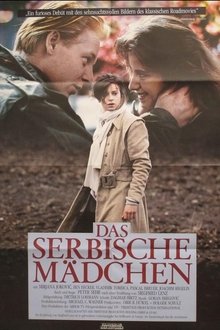
The Serbian Girl (1991)
The naive 18 year old Dobrila leaves her little Serbian village to travel to Hamburg, Germany, where her boyfriend lives. The trip is not easy. Finally in Hamburg she has to realize her boyfriend is not very interested in a relationship. She doesn't tell him she's pregnant and starts on her way home to Serbia, which turns out to be even more exhausting.

The Messenger: The Story of Joan of Arc (1999)
In 1429, a French teenager stood before her King with a message she claimed came from God; that she would defeat the world's greatest army and liberate her country from its political and religious turmoil. As she reclaims God's diminished kingdom, this courageous young woman has various amazing victories until her violent and untimely death.
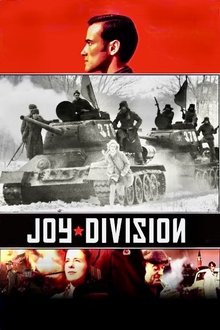
Joy Division (2006)
A teenage orphan fights against the Red Army at the end of WWII and in the aftermath is 'adopted' by a Commissar. Years later he is sent to London during the Cold war to work for the KGB, where he questions his life.
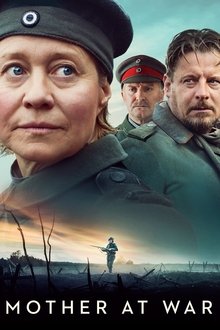
Mother at War (2020)
1918. World War I rages in Europe while Erna Jensen tends to her ordinary life at home in Bramstrup, with her simple-minded son, Kalle. One day the village constable comes to enlist Kalle for military service for the German Empire – of which Southern Jutland is a part. If Erna is to save Kalle from certain death, she must follow him through thick and thin. Upon a chance meeting with a deserting solder she trades identities. Now disguised as Private Julius Rasmussen, Erna heads for the front. In her encounters with the other soldiers and in the presence of the war, unknown sides of Erna are awoken. This is the story of a woman who won’t let a war prevent her from fighting for what she loves.

